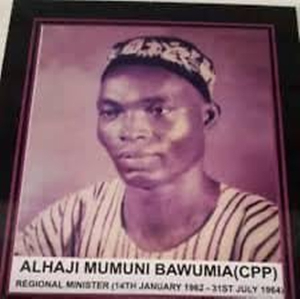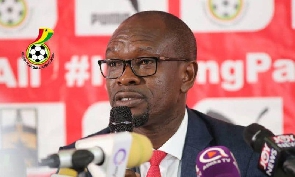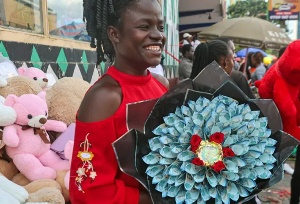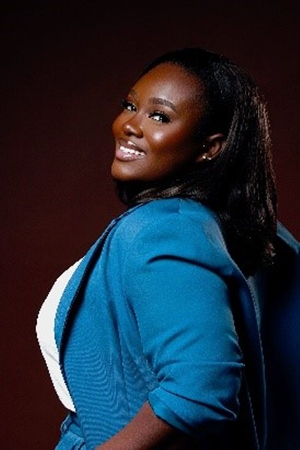Behind The Scarlet Curtain: A Nation’s History Wrapped Around One Man
By Patrick Tachie-Menson, Esquire
The writer is a practicing attorney in the United States
There is no Ghanaian without an opinion (informed or uninformed) on the course of political events in Ghana between 1979 to date. Indeed, no one can discuss this period without mentioning Jerry John Rawlings. Who is he and what does he stand for? This question is a genuine prompt to which every Ghanaian is able to give an opinion. This piece, if you please, is an attempt to lay out my opinion and nothing more. The reader should be cautioned that this article may contain descriptive words, terms or labels that may not be appealing. As a result, reader discretion is advised.
In 1979 A.D Jerry John Rawlings ‘led’(?) a military uprising. As a result, he was regarded by Ghanaians as a daring crusader. Ghanaians unwittingly reinforced this belief by citing his sky dive under the Adomi Bridge with a tax payer owned Jet Fighter. They unjustifiably saw this risky use of a national asset as a benign sign. To them this theatric act combined with the 1979 uprising was a sign that Jerry John Rawlings was a prophesied leader; a twisted modern day version of the biblical story of Moses and the burning bush. He was dubbed ‘Junior Jesus’. Ghanaians failed to realize that Jerry John Rawlings was feeding into this messianic belief with unmatched appetite and gluttony. He grudgingly handed over power to a civilian government in 1979 with this in mind. In a bid to accomplish this belief, he was sucked into the vortex of a political maelstrom of his own creation.
After handing over power to the democratically elected representatives of Ghana’s Fourth Republic, Jerry John Rawlings and key members of the AFRC retired into civilian life. This was pursuant to an agreement (tacit or express) that they would not jointly or severally orchestrate, instigate nor lead another military take over of power. Between 1980 and 1981, Ghana was administered by a representative parliament and an elected executive. During that period, Jerry John Rawlings lay in temporary repose.
On December 31st, 1981, he marched right back onto the political landscape through a military coup d’etat. He staged this coup d’etat in the absence of his previous crony, Boakye Gyan, who, true to his word abided by the agreement between members of the AFRC and the elected representative government. Like Sulla of Rome, Rawlings stormed through the corridors of power (with military and ex-military officers) and seized the reins of power.
One wonders whether this heinous and Cromwellian act could have been accomplished had Ghanaians not fed him with a messianic belief; a messianic mission that no one and not even the professed messiah, Jerry John Rawlings, could define nor put in proper perspective.
The resulting leadership was called the Provisional National Defense Council (PNDC). This label raises a flurry of questions. First, how provisional was its term of office? Second was it broad based enough to deserve the label ‘National’? Third, who and what was it defending? The only word that lived up to its true meaning was ‘Council’. It was indeed a council of the unelected few.
In the words of John F. Kennedy ‘You get the leadership you deserve.’ This saying rang particularly true in Ghana. In 1981, naïve as they were, Ghanaians hailed and supported this unconstitutional overthrow of a democratically elected government. This attitude was a display of infidelity to the sacred power of the ballot box. It was a regrettable exhibition of a lack of dedication to a representative government. The 1979 election was known to have been free and fair and that the results mirrored the free will of the people. However, the 1981 coup d’etat mounted stumbling blocks in Ghana’s path to democracy. It also dealt a punishing blow to democracy and stymied Ghana’s efforts towards an open society.
The PNDC operated behind a façade that it had come to redeem the ‘common man’. However, its true nature began to emerge as swiftly as it tightened its strangle hold on power. From 1981 to 1992 A.D., the unelected group (PNDC) ruled by decree and without consensus. Ghanaians failed to pay heed to the maxim that ‘You know a man not by what he stands against but by what he stands for or is willing to stand for’. Jerry John Rawlings’ 1981 forcible ouster of a popularly elected government should have revealed to Ghanaians that he was not willing to stand for a government elected by the people. After his 1981 coup, Jerry John Rawlings and his posse (members of the PNDC) put to work a propaganda machinery that was effective in purveying the odious idea that he was a man of destiny. It churned out a ridiculously false impression that Jerry John Rawlings was a friend of the ‘common man’. This claim was nothing but malarkey!
The PNDC fostered an atmosphere of retribution against the educated which resulted in a form of ‘anti-elitism’. This was self-evident in the leadership of People Defense Councils (PDC) established by the PNDC. The PDC’s were headed mostly by uneducated rag tags on the rampage. They controlled the distribution of food and other daily necessities. They derided the educated be they from the poor, middle or upper class. PDC cadres and their chairmen were devoted to spreading the ‘gospel’ according to Jerry John Rawlings to wit: Jerry John Rawlings was the ‘deliverer’.
A well orchestrated move was surreptitiously initiated and deceptively carried out to undermine the Ghanaian educational system. University and Secondary education were placed in a petri dish and tinkered with. The existing educational system was hurriedly replaced with a disjointed and hastily arranged one. Secondary education was truncated and divided into two levels: junior secondary schools and senior secondary schools. Academic requirements for admission into the country’s ivy league universities were thrown to the wind and at best lowered. University students were stripped off access to government financial assistance. There were no loans, grants nor scholarships for the bright and disadvantaged. The result was a drop in the standard of education.
To add insult to injury, a majority of the leadership and their benefactors shipped their children and immediate relatives to universities abroad. They did so because they were aware of the mess they had created in the educational system. Ghanaians turned a blind eye to this, if you will, homicide.
However, forces beyond their control combined to force the PNDC to covertly refashion it’s mode of operation but yet still perpetuate its attempt to install authoritarian rule. These forces were both external and internal. First, events in Liberia signaled the possibility of armed insurrection. Armed conflict in Liberia could fuel a similar trend in Ghana. The PNDC perceived this possible trend as a sword of Damocles hanging over its head and sought a way out. Second, Ghanaians had begun to fall out of love with the PNDC and were in search of an alternative. The era of the oligarchy was waning.
As a result, in 1991 A.D., Jerry John Rawlings determined that the PNDC was outliving it’s provisional nature and that it was time to artfully perpetuate Jerry John Rawlings’ hold on power through an elected government headed by him.. To achieve this end, he and his underlings formed a political party called the National Democratic Congress (N.D.C.) and set in motion a multi-party system. The acronym N.D.C was nothing other than the acronym PNDC without the letter ‘P’. This move was aimed at creating a false sense of continuity from a provisional and transient governorship to a lasting and permanent one. The horse had been changed midstream but with the same rider heading in the same direction.
In 1992, with Jerry John Rawlings as it’s presidential candidate, the NDC, without stiff opposition won the 1992 presidential elections. Thus prolonging Jerry John Rawlings’ hold on power. Furthermore, with the NDC in power, Jerry John Rawlings won the 1996 presidential elections. He and his croies were now firmly seated in the saddle of power. To consolidate their power, they unleashed a disingenuous public relations campaign by spreading a falsity; that the buoyancy of Ghana’s economy was the result of Jerry John Rawlings’ policies. This claim has not yet been supported with hard core facts or with cogent argument.
Furthermore, the NDC’s public relations machinery sought to plant a spurious belief that Jerry John Rawlings had introduced stable democratic institutions to Ghana. In a state of delirium and amnesia, most Ghanaians lost sight of the fact that these institutions were not new to Ghana. They were in place and functional before the December 31st, 1981 coup d’etat.
From 1992 to 2000, Jerry John Rawlings’ messianic mission was intensified and perpetuated by three actors, namely : the NDC, himself and his benefactors. This hocus pocus permeated an entire section of the society. He and his lieutenants were fixated on the mirage that they and only they could make Ghana a better place. They touted non-existent laurels. His lieutenants clung onto his nonexistent coat tails. Jerry John Rawlings had no coat let alone coat ‘tails’.
To Jerry John Rawlings, the concepts of liberty, civil and human rights should be placed on the back burner. He was not and has never been willing to champion liberty and a free and open democracy. He believed and still believes in unchallenged power. In a recent statement to a U.S. congressional delegation he urged them to advise Ghanaian politicians to place emphasis on the economy rather than the concepts of liberty and civil and human rights.
By the year 2000 .A.D., Ghanaians had began to see through him and to view him as one who sought to cling onto power forever either directly or by proxy. In the years leading up to and immediately after the 2000 elections, Jerry John Rawlings had become a caricatured fixture on the Ghanaian political scene.
His actions call to mind the story of a king in Greek mythology. Greek mythology recites the story of a self-indulgent king who fell flat on his own insatiable appetite for elusive glory. The king, according to Greek mythology, summoned every tailor in his kingdom to his palace. He announced at the gathering of tailors, that he needed a unique attire to wear for the upcoming parade. He demanded that each tailor sew a gown with a style unknown and never seen in the kingdom. He warned that he would behead any tailor that presents a gown that does not please him. He beheaded one tailor after another until he was left with one witty tailor. That tailor approached the king and with his hands raised and thumbs locked together with the forefinger, he addressed the king with the following words:
“ His majesty, I have in my hands the most beautiful apparel made of the finest silk with glowing colors. It is so elegant that you cannot see it. When worn, the wearer can neither see nor feel it but only the observer can. It must be worn moments before the parade. The wearer must not look in the mirror after wearing it or else it would loose its luster.” The king inquired “where is it?” The tailor replied “ I am holding it in my hands and you cannot see it now. It cannot be seen by anyone until the day of the parade when you march in the parade. Then your subjects will see it.” The king was impressed.
On the day of the parade, the tailor came to the kings chambers and asked the king to step into the invisible gown. The king obliged and walked out on to the streets strutting with pride and a wide smile. His subjects looked at him in bewilderment. Bemused, they murmured to one another “THE KING WEARS NO CLOTHES.” It was too late, the king had walked naked before his subjects.
By the year 2000, Jerry John Rawlings and his posse were as naked as the ‘King’. They had demanded absolute loyalty from Ghanaians and sought more. Their unquenchable thirst for power had blinded their judgment. To them it was a given that Ghanaians would elect Rawlings’ anointed presidential candidate in the 2000 elections. Their lust for authoritarian power had become obvious to the electorate. The electorate had become prudent and as a result handed the presidency to the opposing National Peoples Party in the 2000 election. The 2000 elections was an exercise of the innate authority of the electorate over the authoritarian.
Jerry John Rawlings’ misplaced belief in his messianic mission still continues to this day. To him, Ghana’s democracy should be ushered in and maintained by one indispensable leader, i.e. him. There can be no successor other than one anointed by him. The rift in his party that led to the departure of some members of his party such as Guzzy Tannor in 2000 and the incessant acrimony between the leadership of the NDC bears testimony to this assertion. With him, should his anointed candidate become president, he or she should kow tow to him and govern by his dictates. It is no secret that whenever he is at odds with the current president, Atta Mills, he raves, rants and bellows. He derides and demeans him.
Jerry John Rawlings’ beliefs are characteristic of a type of leadership that emerged in developing countries in the 1990’s. This phenomenon may be dubbed as ‘the era of the authoritarian democrats’. Authoritarian democrats hold the view that leadership should be concentrated in one indispensable man and that without this indispensable man, the country will not progress. To Jerry John Rawlings, Malaysia and Singapore are a model democracy and that Ghana should emulate them. His constant reference to these countries belies his view.
Ghana will do so at her own peril. First, since 1959, Singapore has been governed by one party, the Peoples Action Party. The opposition currently has only two (2) out of eighty four (84) seats in parliament. If Ghana were to follow Singapore, then Jerry John Rawlings could perpetuate his rule and influence by and through NDC. Second, Mahathir Mohamad, was prime minister of Malaysia for 22 years until he resigned in 2003. Malaysians saw a ray of hope in his resignation. However, he continued to control and snipe at his successor (from his own coalition). Jerry John Rawlings wants to do the same. He seeks to exercise unprecedented control either by himself or through his hand picked successor in the NDC.
Ghana cannot and will not benefit from a scenario of such nature. Ghanaians have evolved to rightfully despise authoritarianism. Besides, our history will not augur well with such a system. Unlike Singapore and Malaysia, Ghana has experienced several coup d’etats and upheavals. Given this background, it would be national suicide if we were to blindly and wholeheartedly emulate these countries. Jerry John Rawlings must disabuse his mind of that.
Like authoritarian democrats, Jerry John Rawlings fails to realize the underpinnings of economic prosperity and equity. His obtuse view fails to apprehend the fundamental and ineluctable principle that there cannot be economic progress and equity without the twin pillars of liberty and rights. One cannot eschew the other.
No revision or rewriting of history can consecrate or sanctify Jerry John Rawlings’ inordinate lust for power and his disdain for liberty, human and civil rights. He and only he can redeem himself. To do so, he must whole heartedly embrace and champion the concepts of liberty and rights. He must make a paradigm shift. He must shift from his listless and endless quest for his own self empowerment to a noble quest for the empowerment of the citizenry. He must take note of Patrick Henry’s famous cry for liberty in the years leading to the American Revolution, “GIVE ME LIBERTY OR GIVE ME DEATH.” This is the banner carried aloft by the present day Ghanaian.
He needs to have an epiphany. He must come to the realization that the foundation and greatness of a nation lies in the liberty and rights exercised by its citizenry. Economic prosperity and it’s attendant opportunities cannot be available to all if the basic tenets of liberty and rights are nonexistent or at best limited. Liberty includes all the basic freedoms such as freedom of speech, freedom to petition the government, freedom to seek redress through the judicial system etc. It is a channel through which people can peacefully vent their grievances against the rich, poor, or powerful. It is also a means by which wrongs can be righted and wealth redistributed equitably in an orderly fashion.
In the end, some societies use their best efforts by and through intolerance to achieve an authoritarian system. Conversely, Ghanaians can use their worst efforts by and through tolerance to guarantee a free, open and democratic society.
Opinions of Wednesday, 3 November 2010
Columnist: Tachie-Menson, Patrick














